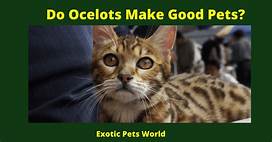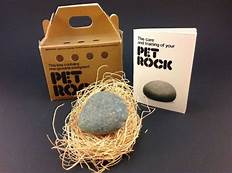Do Ocelots Make Good Pets?
Ocelots are stunning felines known for their striking coats and enigmatic nature. Some individuals have considered keeping them as pets due to their beguiling appearance. However, it is crucial to delve into the intricate aspects of ocelot behavior and their suitability as domestic companions.

Ocelots' Wild Instincts
1. Untamed Nature: Ocelots, like other wild cats, retain their innate instincts, making them unpredictable. Their inherent predatory behaviors, territoriality, and solitary lifestyle clash with the demands of domestication.
2. Behavioral Challenges: Ocelots may exhibit aggression, marking behaviors, and destructiveness when confined in a home environment. Their need for ample space, enrichment, and specialized care often overwhelms inexperienced owners.
3. Legal Constraints: Keeping ocelots as pets is restricted or prohibited in numerous jurisdictions due to conservation concerns. Owning one without proper permits and licenses is illegal and carries significant penalties.
Health and Safety Considerations
1. Zoonotic Diseases: Ocelots can harbor parasites, bacteria, and viruses transmissible to humans. Contact with their feces, urine, or saliva poses a health risk, particularly for immunocompromised individuals.
2. Exotic Pet Trade: The illegal trade of exotic pets fuels the demand for wild animals, including ocelots. This trade contributes to habitat destruction, the depletion of wild populations, and the spread of diseases.
3. Conservation Status: Ocelots are classified as "vulnerable" by the International Union for Conservation of Nature (IUCN). Keeping them as pets exacerbates the threats they face in the wild, further endangering their populations.
Alternatives to Owning an Ocelot
1. Wildlife Sanctuaries: Visiting wildlife sanctuaries and conservation centers allows individuals to observe ocelots in their natural habitats and learn about their behavior and ecological significance.
2. Educational Programs: Zoos, museums, and educational institutions offer programs that provide insights into ocelot biology, ecology, and conservation efforts. These experiences can foster appreciation and respect for these magnificent creatures.
3. Adopt a Domestic Cat: Adopting a domestic cat from a shelter or rescue organization provides a loving home to an animal in need while also reducing the demand for exotic pets.
In conclusion, ocelots are captivating animals, but they are not suitable pets. Their wild nature, unique needs, and potential risks overshadow any perceived benefits of domestication. By appreciating them in their natural habitats or through responsible educational programs, we can help conserve these remarkable felines and promote their well-being.
Declaration: All article resources on this website, unless otherwise specified or labeled, are collected from online resources. If the content on this website infringes on the legitimate rights and interests of the original author, you can contact this website to delete it.






